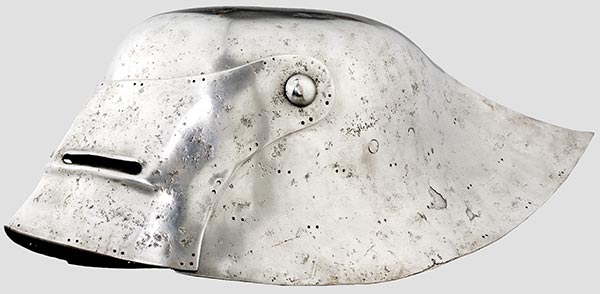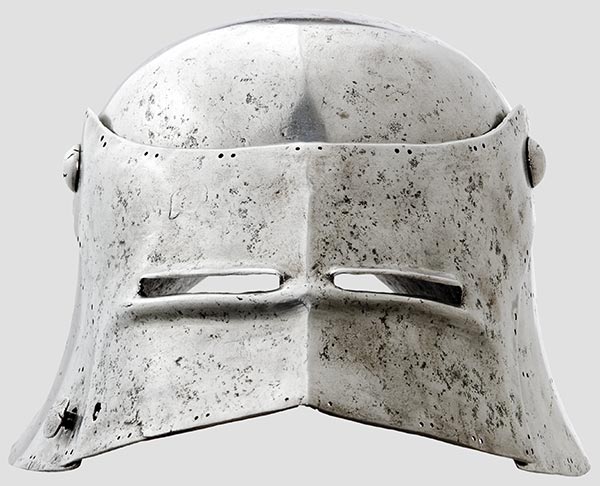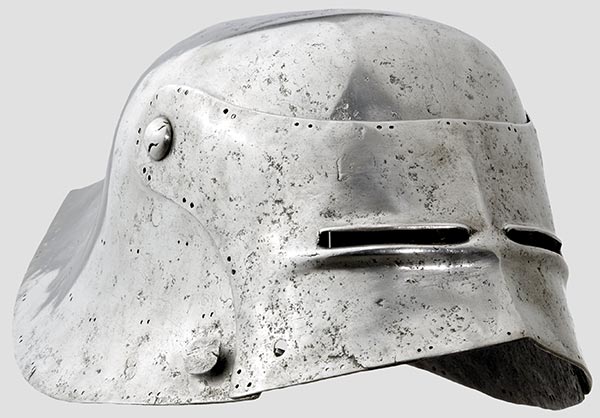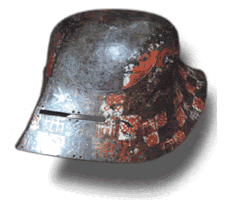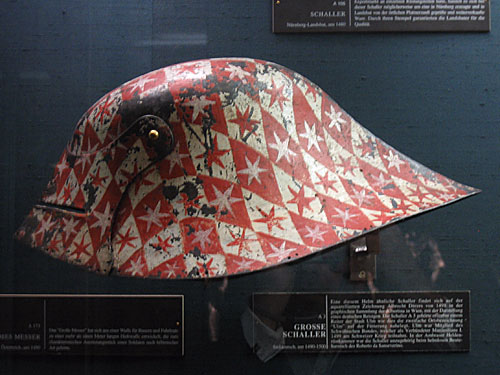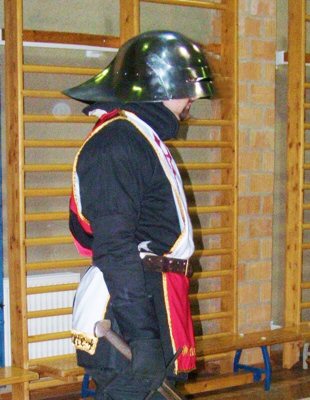Dont know if pics of this BEAUTY has been posted before, but just to make 100% sure no lover of the 'Schwarze Schaller' goes without..;
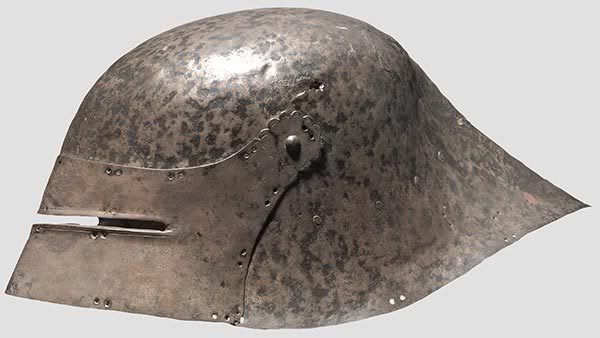
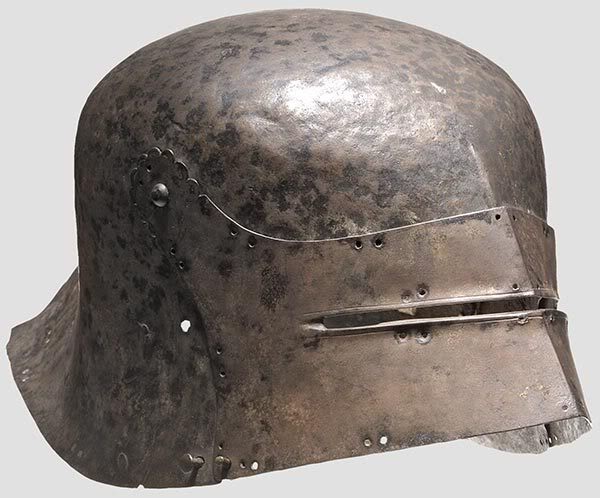
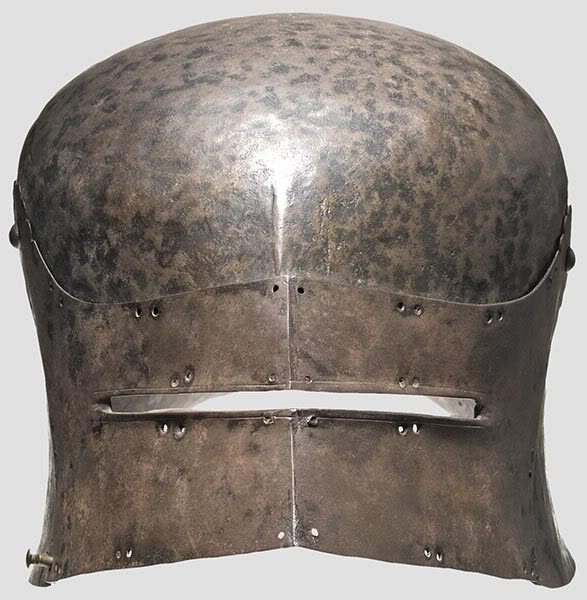
"Black sallet. Southern German, circa 1490.
A light helmet forged in one piece with a widely extended skull and lightly pulled-in sides. The ridged neck protector coming to a point. Clearly visible hammer marks. There is minor damage both at the left temple and on the right side. The smooth visor (possibly replaced) has a broad eye slit and opens upwards. The hinges have crenellated edges and embossed decoration. There is a spring latch on the right side. Surrounding lining rivets with remnants of the original leather. Visor and skull are surrounded with double holes for attaching a fabric cover. On the inside an old label from the Leichtle collection in Kempten, as well as the engraving "IKL" (Iohann Leichtle Kempten). Attached collection label from the Kempten City Museum, where is was on loan from 1946 - 2006. Height 21.5 cm. Length 45 cm. Weight 1580 grams.
Cf. a nearly identical example in the Kunsthistorisches Museum Wien illustrated in Howard M. Curtis. 2500 Years of European Helmets, pp 172 f."
It was up for auction on Hermann Historica recently, went for 30000€ if im not misstaking.
-----------------------------------------------------------------------------------------------------------------------------------------
My query is about this one; (it is sometimes caregorized as a 'black sallet' but it really only shares the "style" and not the "black" (forge rough) surface that im assuming is the reason for the name.)
[ Linked Image ]
What im looking for is any better pictures of this one, and any further info.
